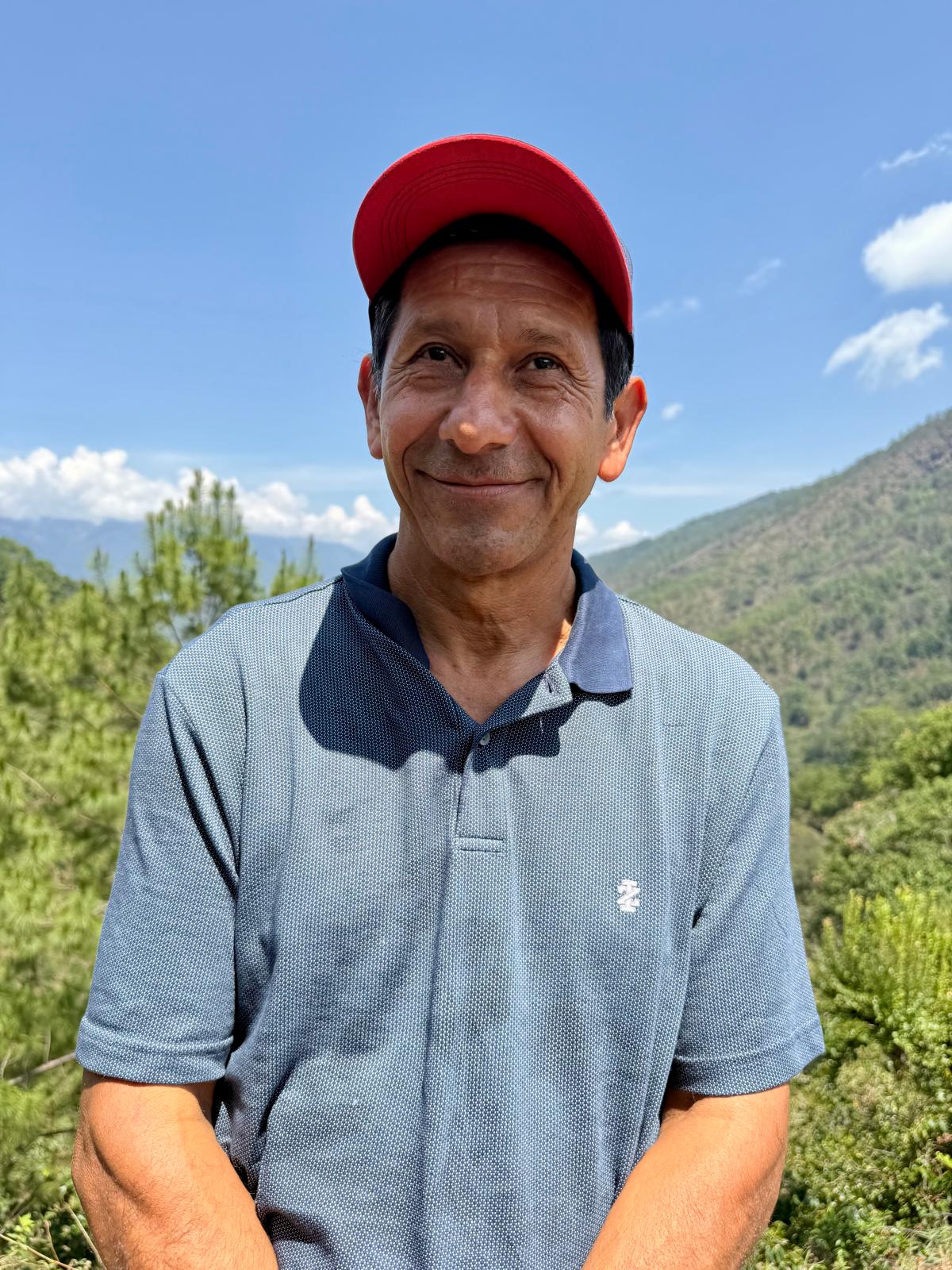By Michelle Shaw
If you’ve tuned into any of the Social Media posts from Bob and Michelle Fish, Co-Founders of One Bigg Island in Space (OBIIS), you’ve probably noticed they call themselves Coffee Hunters. They utilize this title while traversing coffee farms, all over the world, in search of their next Farm-Direct partnership.
The phrase has always made sense to me, but I have a confession to make: I didn’t understand what it meant to be a Coffee Hunter until this most recent trip to Guatemala.
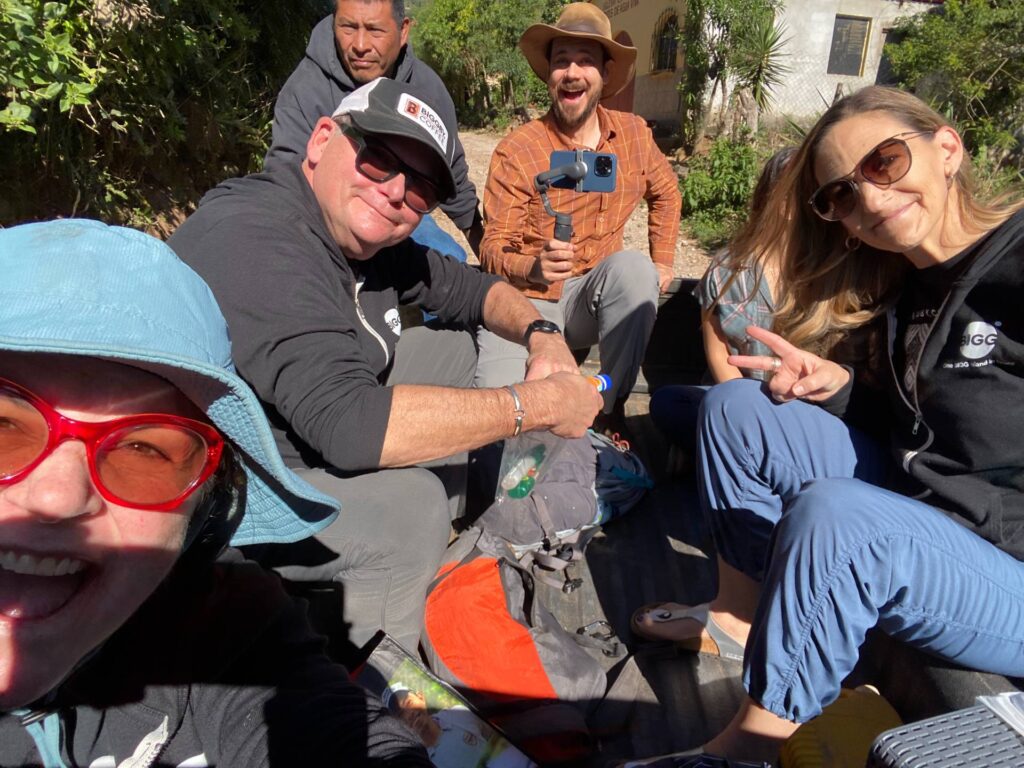
Coffee Hunters on our way for our first visit to Finca Vista Al Mar in Guatemala in November of 2024.
What We Were Doing There
As a result of its sponsorship at the Producer Roaster Forum (PRF) held in Guatemala City in March of 2024, OBIIS generated 30 leads for potential farm partnerships. Through extensive conversations over Zoom, those 30 had been narrowed down to the 12 farms we would be visiting over our 10 days in Guatemala.
Here’s the thing. Forming a farm-direct coffee partnership, or Coffee Hunting, is sort of like dating. However, on these dates? There’s not much time for small talk or lighthearted flirtation. Sure, we laugh and we joke, but we head directly into some pretty hefty conversations.
What’s the rush? Everything has to be compressed. By the end of the first date, we need to determine if there will be a second. While the logistics behind these dates may prolong the courtship for months, typically the “marriage proposal” (our decision to be in for the long haul) is already happening by date number three.
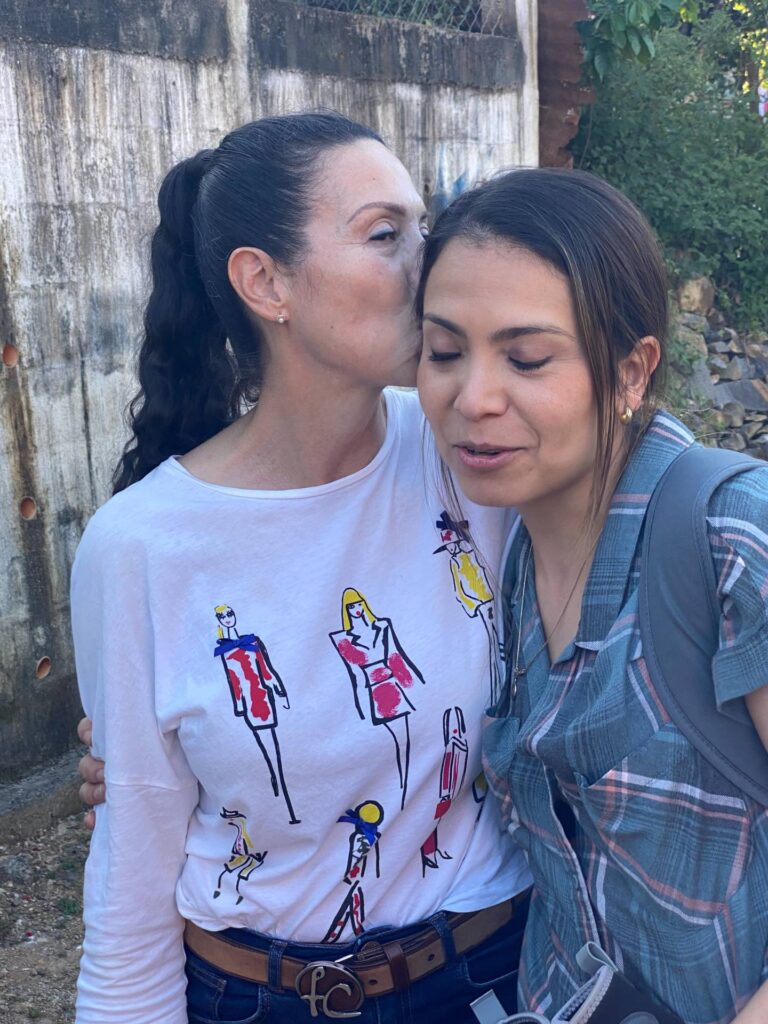
Johana and her daughter Maria Fernanda
Finca Vista Al Mar
Our date with Johana (the owner of the farm) and her daughter Mafer (short for Maria Fernanda) lasted an entire day. We first met Mafer in our hotel lobby, and I liked her right away. She was smart and energetic. Things were off to a good start.
Eventually, we got to Santa Maria where we first met Johana. Johana’s passion and zest for life were evident in the sparkle of her smile.
We spent time at the community school. We learned more about Johana’s commitment to her community and her love for these children. This date was moving along nicely!
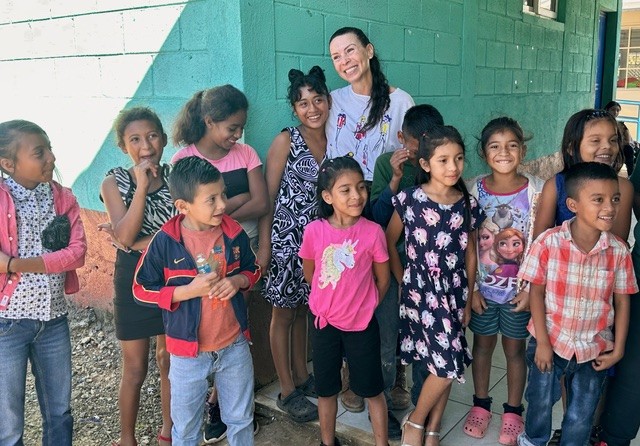
Next up, we headed to Johana’s home perched above the coffee fields: Finca Vista Al Mar. The translation gives away some of the magic: Farm with a View to the Sea. Our view extended all the way across the mountains out to the Pacific Ocean, and it was stunning!
We moved inside and enjoyed some cold water and oranges while viewing a presentation about the farm that Mafer had prepared.
When I heard the farm’s slogan, “Reconciling hearts and uniting families,” I could feel myself falling further in love.
Dreams and Coffee Farming
Johana was transparent that coffee farming was new to her. Her plants were not yet fully grown, but she was eagerly anticipating her first harvest.
As we listened, we learned more.
This coffee farm was a dream deferred. Due to the complexities of how land is passed down to the next generation, Johana’s farm had been lost to family squabbles and legal struggles for more than twenty years. She was funding the coffee farm through her salary at the university where she worked. She had also taken out a loan to help fund the project. She was absolutely relying on this harvest to keep everything afloat.
After hours of conversation, we decided it was time to walk the fields.
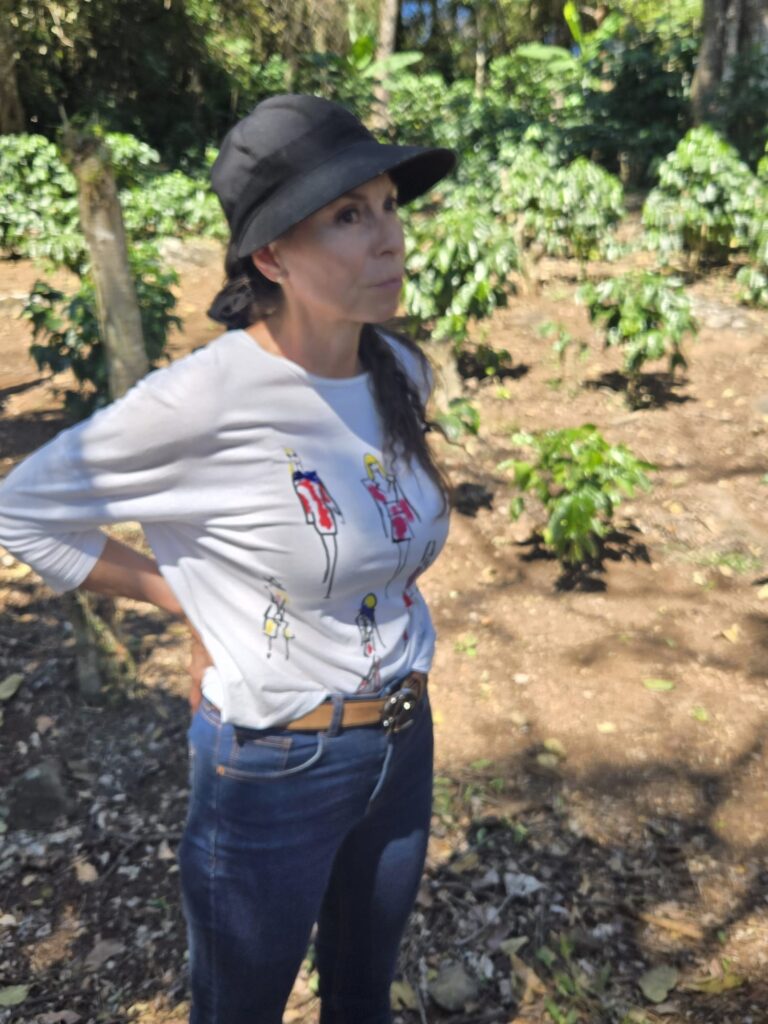
People First
It may seem strange that as Coffee Hunters we don’t begin our date by walking through the farm. But here’s the thing. We’re about people first. Remember, this partnership is meant to be lifelong. We need a relationship that is value aligned, giving it the best chance for success. So, we spend time getting to know each other. We ask lots of questions. We are asked lots of questions. We explain that we are looking for partners who are doing right for their people, the planet, and for their community.
Honestly? I couldn’t wait to see Johana’s farm, and I’ll admit . . . I was sure we’d be having a second date.
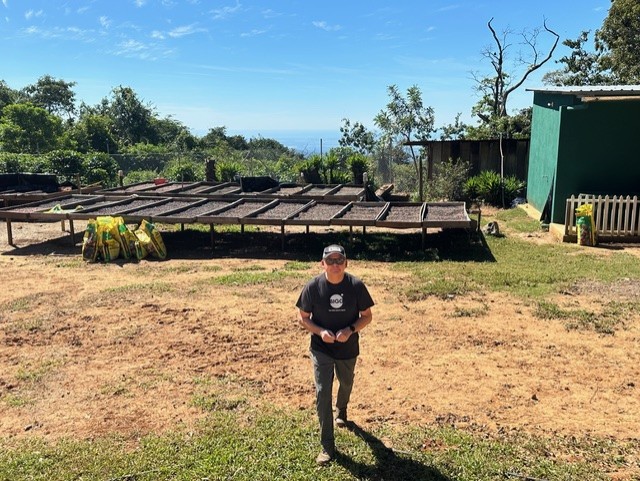
What We Saw
We started the tour at the drying beds. The coffee smelled and looked good. Johana’s pride in her new set up, and the quality of her coffee, was evident.
Next, we walked to the edge of the fields. A man was sweeping away everything from around the coffee plants. It was explained to us that the soil was contaminated, so they were cleaning up the contaminants by sweeping away the debris.
Uh-oh. Contaminated by what?
Johana explained that she had much to learn about coffee farming, so she was getting help from the specialists from Guatemala’s National Coffee Organization, Anacafé. On the face of it? This makes all the sense in the world. Someone seeking knowledge turns to the national experts.
When Help Isn’t Helpful
Anacafé advised Johana to use herbicides on her coffee fields in order to save costs. The herbicides meant she could hire fewer workers because the weeds would be better controlled. And, she was told, her plants would increase their yield.
Johana trusted the advice and guidance she was given from Anacafé, and that’s where the real tragedy comes in.
The herbicides Johana was told to use on her fields are known carcinogens. That’s right. The chemicals cause cancer.
Anacafé has a rating system for their chemicals: Green, Yellow, and Red. Green are all good. Yellow should be used in moderation. Red are not to be used at all.
The chemicals Johana is using are rated Yellow . . . not because they are safe, but because the level of concentration is somewhat diluted.
This chemical, even if its diluted, is still a systemic herbicide. Meaning, its toxicity is taken in by the entire plant. Not just the soil. Not just the roots. The whole. darned. plant.
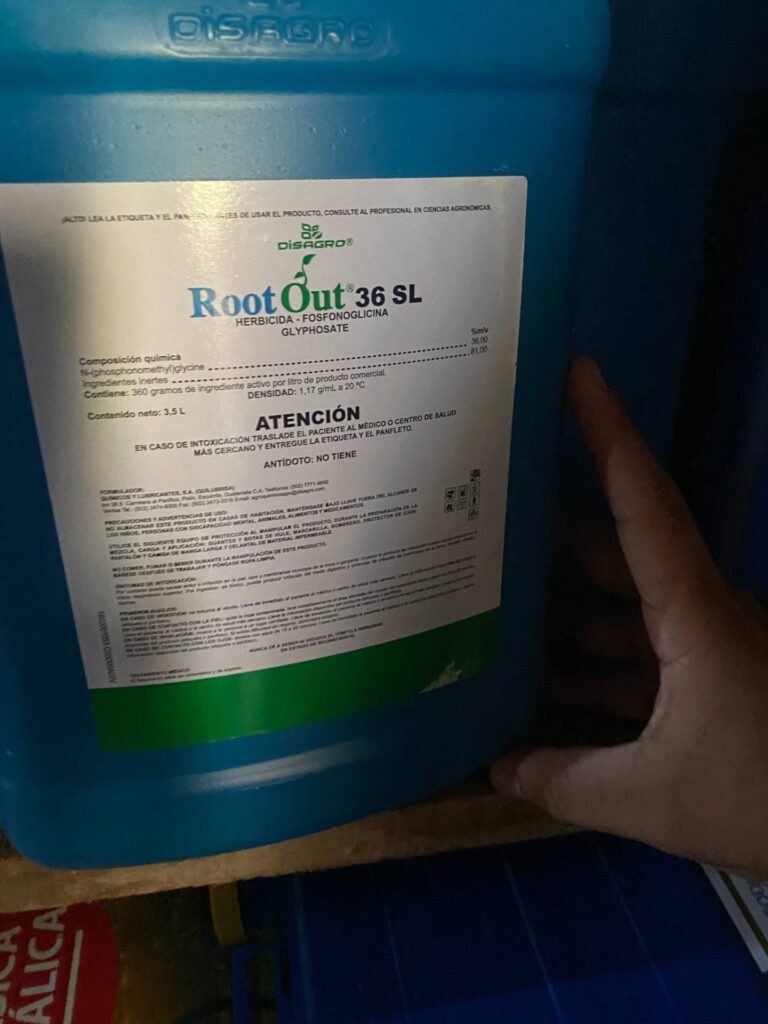
The Chemical Closet
Johana showed us where all her chemicals were stored and answered all of our questions. We asked if her workers wore proper safety equipment when working with these chemicals? We learned that while they have goggles and gloves, the workers don’t like them, so they only wear boots. No respirator. No other protection.
At this point? My heart was in my stomach. I couldn’t WAIT to get out of the toxic fumes in this shed.
This kind of chemical is a serious red line for us. There’s no way we can buy Johana’s coffee. Our coffee is tested, and this certainly does not pass the test.
So now what?
After just one day, I felt invested in Johana’s dream and her vision. I care about her future, the future of her farm, and the future of her family and her community.
I understand Johana chose these herbicides based on the advice of “experts.”
I know there will not be a second date.
Sometimes, That’s How it Goes
Not every date ends up in marriage. Not every part of the hunt is successful. And tomorrow? Our Coffee Hunting team has a brand new date all lined up.
Thankfully, our relationship with Johana can continue, even if we can’t buy her coffee. We will continue to support her through shared knowledge and expertise. She has access to calls with our Quality of Assurance Director, Jorge Ferrey, as well as our other farm partners. I’m hoping Johana and Mafer will find a way forward that’s free of carcinogenic herbicides.
We care about Johana and Mafer; we cannot buy the coffee.
Being a Coffee Hunter means putting yourself out there. Getting invested in the people you meet. Hoping this is the ONE that becomes a lifelong relationship.
Bob and Michelle have visited over 120 farms. They currently have 4 Farm-Direct partners.
I’m excited that two of our other farm visits in Guatemala will most likely lead to second dates. We met so many people doing fabulous things for people, planet and community. I can’t wait for you to learn more about their stories.


